Americans lost 138,883,045 sleep hours, recorded 15 percent increase in stress and 9 percent increase in anxiety on the night of the 2020 US elections, according to a report by Sleep Standards.
November 3rd, 2020 was a day that the world, not just the United States of America, held its breath—and its sleep. 2016 was bad for US citizens; 2020 has turned out worse. What about 2024?
There are a little over 330 million people in the US. According to Sleep Standards, an average of 32% of the population reports that they feel tired after election nights. That is over 105 million people whose functioning was impaired in the aftermath of the 2020 election.
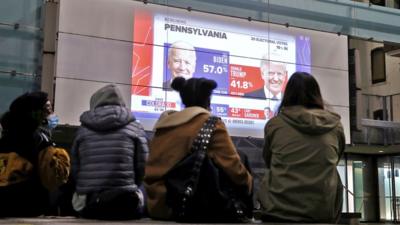
In 2016, a wearable technology company, Fitbit, reported that its American users lost an average of 29.32 minutes of sleep on the night of the 2016 Presidential Election. Comparatively speaking, while four years later Americans lost an average of 30 minutes of sleep, a few other factors indicate that they have had it worse this year.
Contesting the election were five notable candidates of the Republican, Democratic, Libertarian, Green and Constitutional parties. It was essentially a two-horse race, culminating in the largest voter turnout in the history of the country, with 66.2% of its roughly 233 million voters casting their ballots. But even though the other parties collectively had less than 3 million votes, the intensity of the race between the Democratic and Republican parties overshadowed the other parties’ dashed hopes. They cared deeply about who would lead their country. They waited up. And when it was obvious a winner would not emerge that night, they went to sleep 26 minutes later than they did in 2016.
But how is it that Americans went to sleep 26 minutes earlier in 2020 than in 2016, but still lost more sleep than other years?
It was a close-call. It is not always the case that a winner emerges shortly after the presidential election, but compared to 2016 where the winner was quite clear by the next day, this year’s election stretched for too long. Mail-in ballots and COVID-19 precautions delayed the process. The result: restlessness and anxiety.
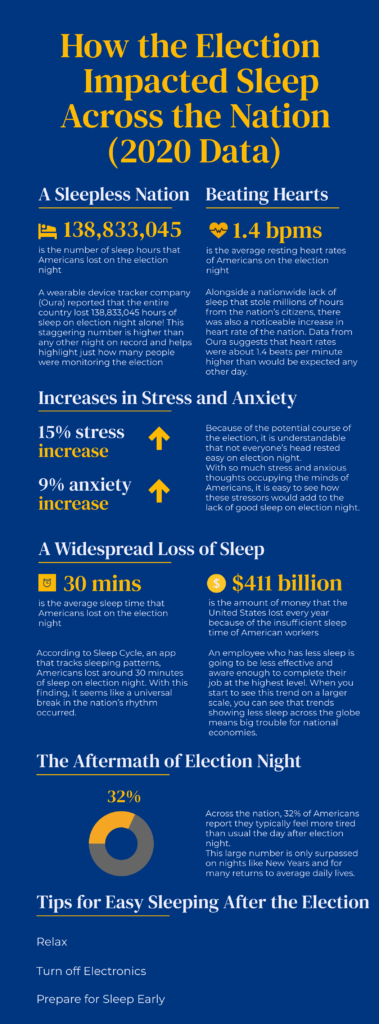
Collectively, Americans lost 139 million hours of sleep on the election night, and Sleep Standards reports that there were 15% and 9% increases in stress and anxiety, respectively, in Americans. According to this survey, 44.2% of the respondents said the election impacted them, of which 96.5% reported a negative impact.
A Tale of Exhaustion and Stress
The American Psychological Association says here that the stress levels brought on by the 2020 Presidential Election are more than they were in 2016. Restlessness and anxiety are stressors that affect the functioning of the body and ultimately put the physical health, mental health and life in danger. This puts individuals with preexisting health conditions at greater risk.
It’s not just you, America
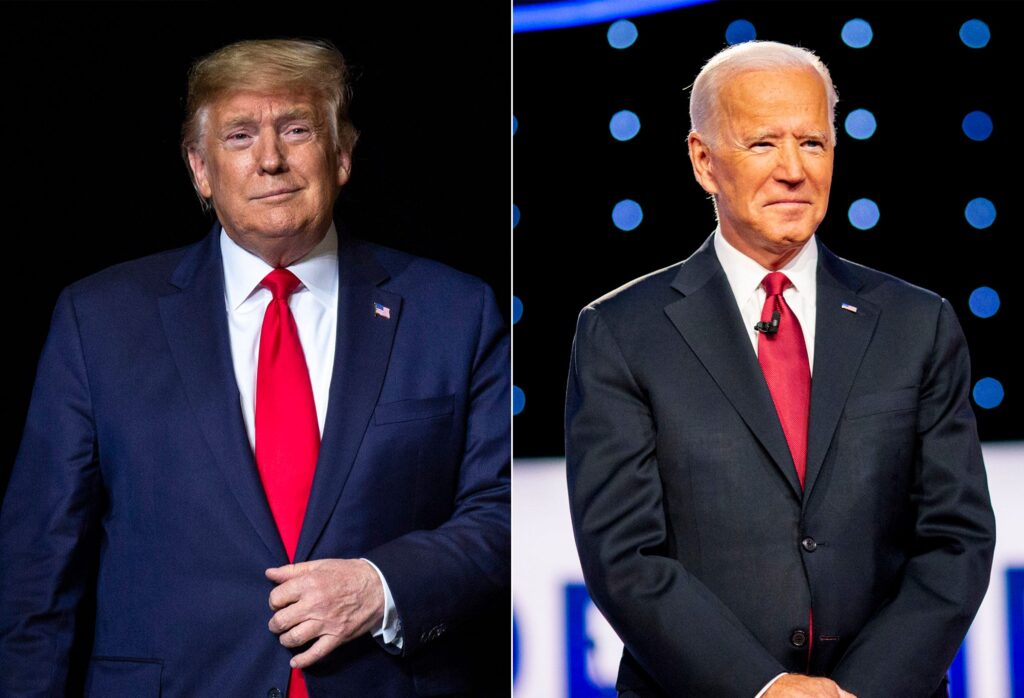
The world stayed awake also on the election night, with all attention focused on the world’s greatest economy. The Telegraph reports that UK users of Sleep Cycle, a Swedish sleep-tracking app, lost an average of 21 minutes of sleep as they awaited the election the results. Similarly, America’s other European allies (e.g. France), rivals (China and Russia), and foes (e.g. Iran) all kept their eyes transfixed on the US.
The Situation
Internally, this nail-biting experience results, among other things, from an even more acute polarization of the two major parties of the United States. Conversations are charged, propagandas are the rule of the day. The tussle for power has become a no-holds-barred affair, and even more so for the parties’ supporters.
One party has retreated to lick its wounds, and though the fight will never cease, it will most certainly return in four years’ time, and so will the people. From all indications, however, as the years go by, so will anxiety and stress levels in what is probably the most active decade of political divisions in the United States of America.





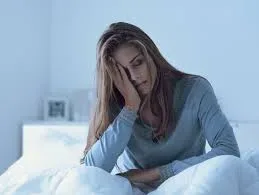


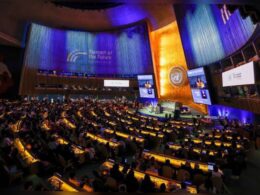
Join our Channel...